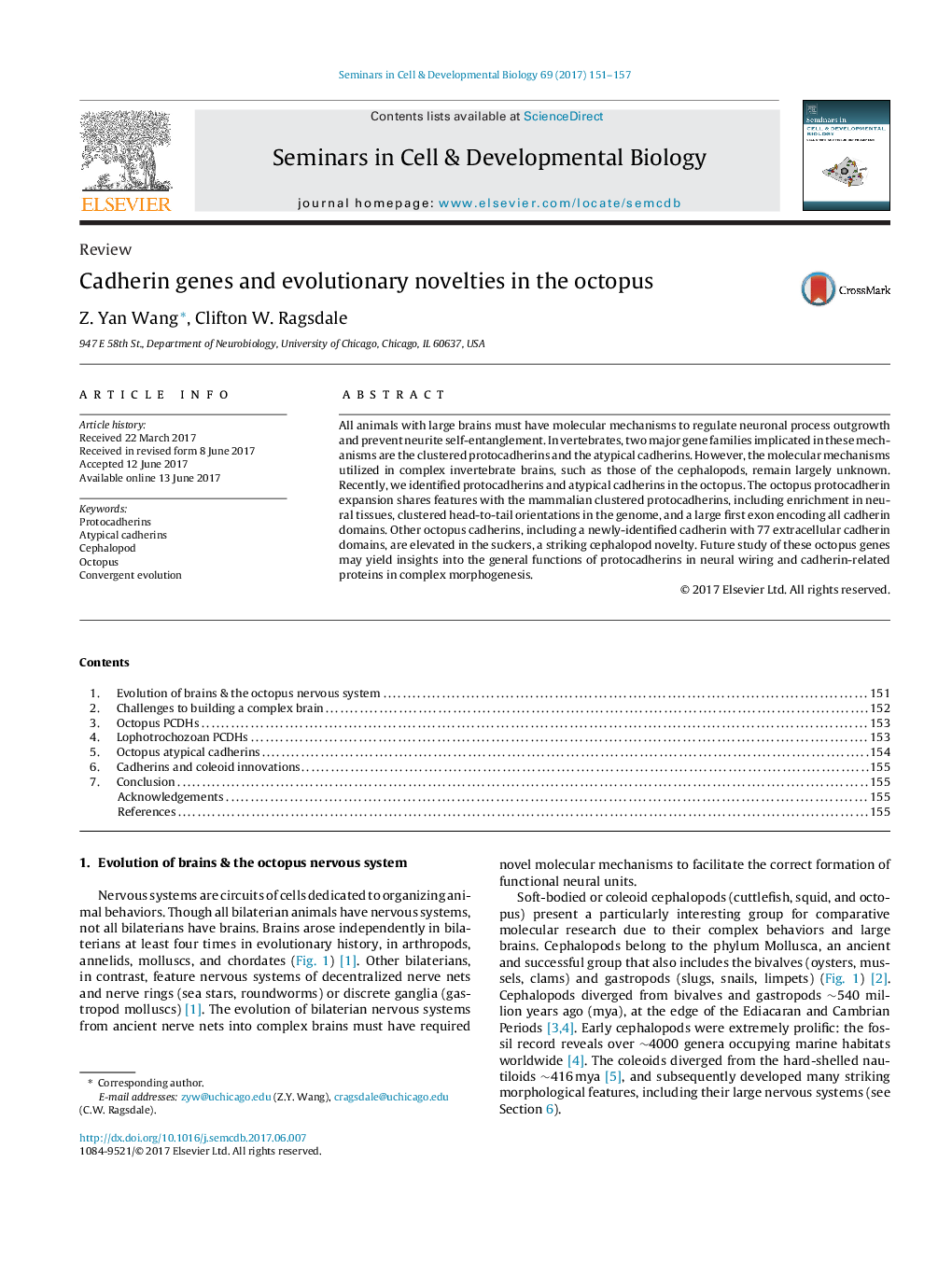| Article ID | Journal | Published Year | Pages | File Type |
|---|---|---|---|---|
| 5534821 | Seminars in Cell & Developmental Biology | 2017 | 7 Pages |
All animals with large brains must have molecular mechanisms to regulate neuronal process outgrowth and prevent neurite self-entanglement. In vertebrates, two major gene families implicated in these mechanisms are the clustered protocadherins and the atypical cadherins. However, the molecular mechanisms utilized in complex invertebrate brains, such as those of the cephalopods, remain largely unknown. Recently, we identified protocadherins and atypical cadherins in the octopus. The octopus protocadherin expansion shares features with the mammalian clustered protocadherins, including enrichment in neural tissues, clustered head-to-tail orientations in the genome, and a large first exon encoding all cadherin domains. Other octopus cadherins, including a newly-identified cadherin with 77 extracellular cadherin domains, are elevated in the suckers, a striking cephalopod novelty. Future study of these octopus genes may yield insights into the general functions of protocadherins in neural wiring and cadherin-related proteins in complex morphogenesis.
